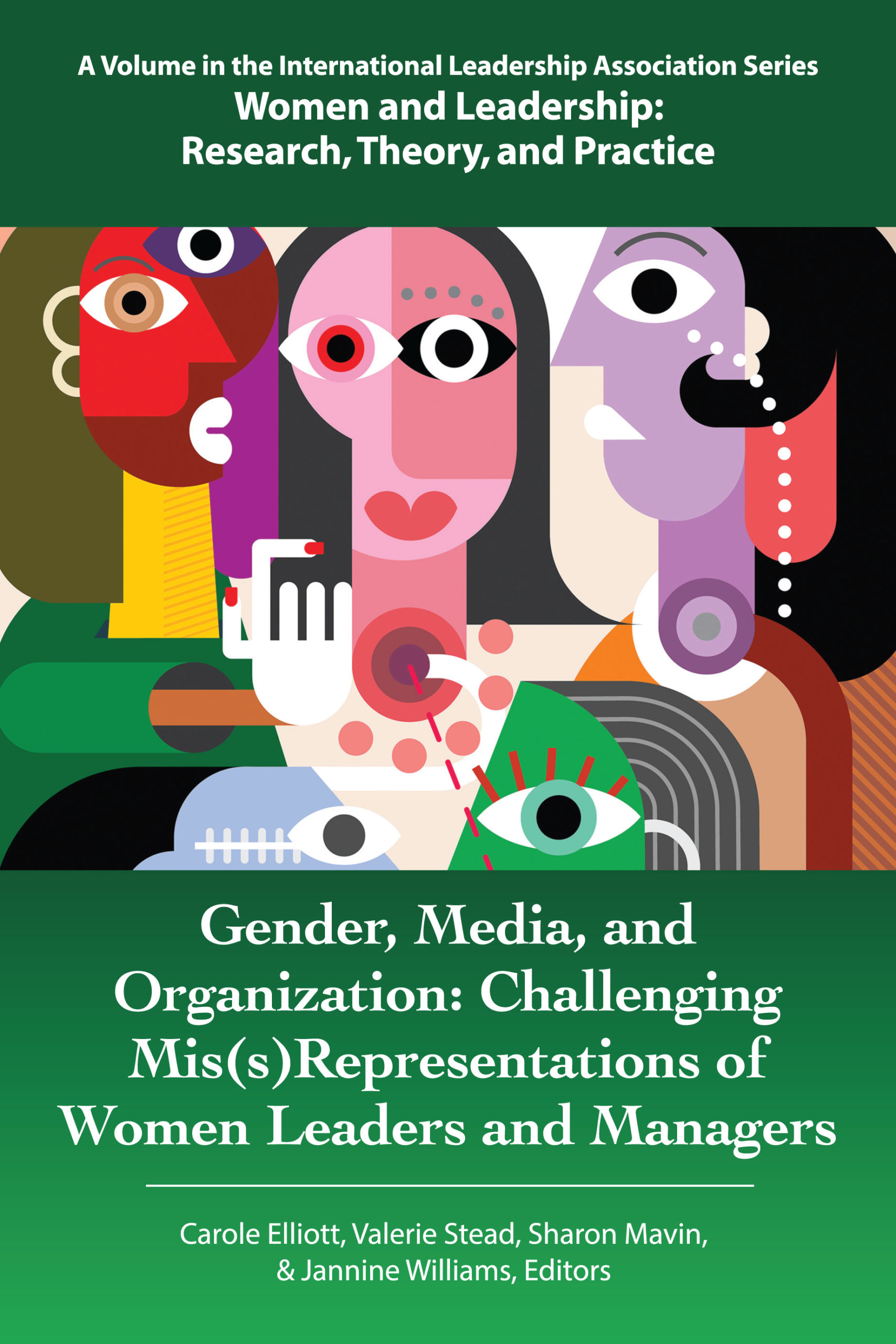Description: Gender, Media, and Organization: Challenging Mis(s)Representations of Women Leaders and Managers is the fourth volume in the Women and Leadership: Research, Theory, and Practice series. This cross‐disciplinary series from the International Leadership Association draws from current research findings, development practices, pedagogy, and lived experience to deliver provocative thinking that enhances leadership knowledge and improves leadership development of women around the world. This volume addresses the lack of critical attention in leadership research to how women leaders and professionals are represented in the media. The volume acts as a companion piece to a Seminar Series, funded by the UK’s Economic and Social Sciences Research Council (ESRC), to address this gap in the research. The lack of research interrogation of gendered media representations of women leaders and professionals is a surprising omission given the wealth of evidence from stakeholders outside academia revealing that women, and women leaders, continue to be underrepresented across all forms of media outlet. This volume contributes to social change, equality, and economic performance by raising consciousness about women’s lack of representation in the media and challenges gendered mis(s)representations of women professionals and leaders in the media through the presentation of a range of empirical investigations and methodological approaches. The volume contributors use various theories and conceptualizations to problematize and analyze women’s limited representation in the media, and the gendered representations of women professionals and leaders.
Together, the volume’s 14 chapters reflect the beginning of a rich, diverse, emergent strand of academic research that interrogates relationships between the media in its multiple forms and women’s leadership. Illuminating the positioning of women leaders and professionals as both complex and problematic, these chapters offer an important agenda for management and organization scholars. They attest to the need to describe and make visible women’s mis(s)representations in the media while drawing attention to the importance of situating these mis(s) representations in the broader social, economic, historical, cultural, and political context as a means to gain insight into their development and evolution. As a rich and diverse site of research, examination of the media calls for a broad methodological repertoire. The chapters in this book draw from multiple sources and include, among others, the development of thematic analysis to illuminate stereotypes, the use of critical discourse analysis to understand professional women’s experience, a rhetorical analysis of the covers of Time magazine, and an interrogation of the power dynamics manifested in the media’s practice of nicknaming women leaders.
Gender, Media, and Organization is a first step in stimulating further research that poses critical questions concerning gendered and sexualized representations of women leaders in textual and visual forms, and considers the media’s influence on gender equality and social justice. The chapters offer fruitful avenues for future research to continue the momentum of challenging gendered media representations of women leaders and professionals.
About the Co-Editors
Carole Elliott is Professor of Human Resource Development at the University of Roehampton Business School in London, U.K., and visiting fellow at George Washington University, Washington, DC. Carole’s principal research interests are in management and leadership learning, with a primary focus on the critical examination of women’s leadership and women’s leadership learning.
Valerie Stead is Senior Lecturer in management learning and leadership at Lancaster University Management School, Lancaster, U.K. and visiting fellow at George Washington University, Washington, DC. Valerie’s research interests are in leadership, learning, and critical approaches to research, with a primary focus on the critical examination of women’s leadership and women’s leadership learning.
Sharon Mavin is Professor of Organization and Human Resource Management and Director of the Roehampton Business School, London, U.K. Sharon was previously Associate Dean and Dean of Newcastle Business School (2003-2013). She is Chair of the University Forum for Human Resource Development and has been awarded Fellow of the British Academy of Management for outstanding contributions to the academy.
Jannine Williams is a Lecturer in Human Resource Management and Organizational Behaviour at University of Bradford School of Management, Bradford, U.K. After completing her PhD on disabled academics’ career experiences at Newcastle Business School, Jannine coordinated the Gender, Media, and Leadership project which investigated women’s perspectives on media representations of women and leadership in a U.K. region.
Table of Contents
Introduction: Carole Elliott, Valerie Stead, Sharon Mavin, & Jannine Williams
- Is She Really Into It? The Media as Misleading in its Portrayal of Female Executives’ Work-family (Imbalance – Maura Mills, Leanne Tortez, & Maria Gallego-Pace
- Who’s That Girl? The (Misrepresentation of Female Corporate Leaders in Time – Sandra L. French & Lisa Baker Webster
- A Fairytale Career: Media Representations of Australia’s First Female Banking CEO – Helena Liu
- Pulling a Chair Up to the Table: A Critical Analysis of the “Lean In” Self-Help Movement and Its Implications for Individual Women and Women’s Equality at Work – Judith A. Clair & Caela McCann
- “There’s Never Been a Better Time to Be a Woman”: The Discursive Effects of Women on Boards Research Reports – Scarlett E. Brown & Elisabeth K. Kelan
- Dress and the Female Professional: A Case Study of ‘Working Woman’ – Ann Rippin, Harriet Shortt, & Samantha Warren
- In the Name of the Other: Nicknaming and Gendered Misrepresentation/s of Women Leaders –Alison Pullen & Lucy Taksa
- Caveman Meritocracy: Misrepresenting Women Managers Online – Janne Tienari & Pasi Ahonen
- Wynne Some, Lose Some: An Intersectional Approach to Media Prejudice against Canadian Women Politicians – Rita A. Gardiner
- The ‘Gogglebox’ and Gender: An Interdiscursive Analysis of Television Representations and Professional Femininities – Helen Rodgers, Liz Yeomans, & Sallyann Halliday
- Mediating The Future: Women Political Leaders in Science Fiction Television – Kimberly Yost
- The Runway-Ready Ringleader and Other Media Myths: An Analysis of Common Television and Film Stereotypes of Women Leaders – Shana Matamala & Stephanie Abrahim
- Working In Shondaland: Representations of African American Women in Leadership – (Carrie Wilson-Brown & Samantha Szczur
- The Margin as a Space of Resistance: Transforming Gendered Leadership through Popular Film – Alexia Panayiotou




